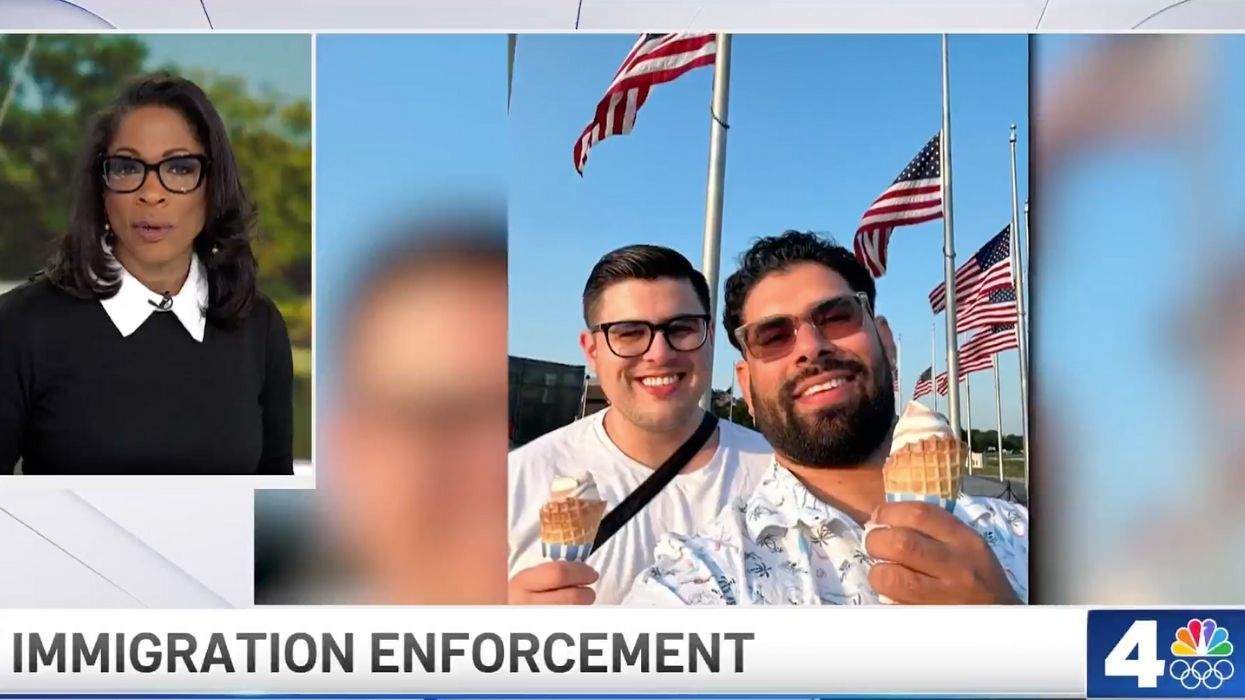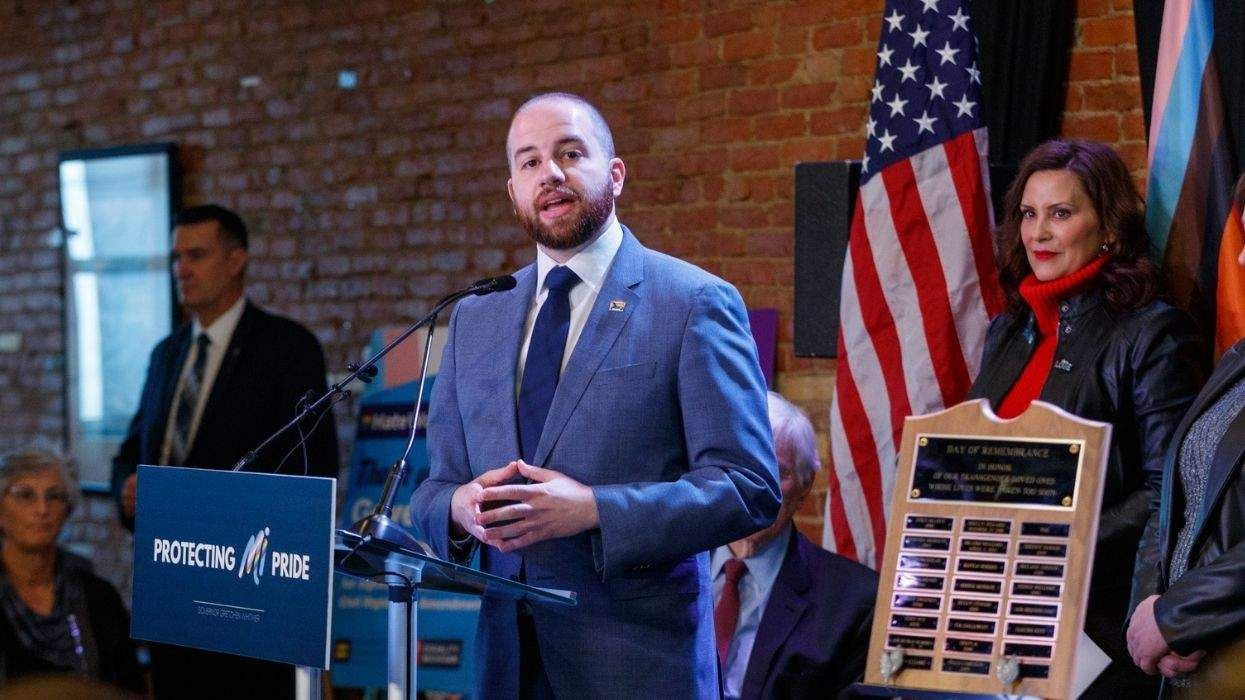COMMENTARY: A "tipping point," according to Malcolm Gladwell (who wrote the book with that title), is "the moment of critical mass, the threshold, the boiling point." When future generations look back on Wednesday, February 23, 2011, there can be little doubt that they will see it as such a tipping point in the quest for equality for lesbian, gay, and bisexual people. We still have far to go, but that day is a sure sign that it is only a matter of "when," not "whether," the promise of equality under the law will be fulfilled, regardless of one's sexual orientation.
What hit the most headlines, of course, was the statement of the Department of Justice that it will no longer be defending the so-called Defense of Marriage Act because it has concluded that that law is unconstitutional. What was an even bigger development, however, was the conclusion of the president, the U.S. attorney general, and the Department of Justice that all laws that discriminate based on sexual orientation should be presumed to be unconstitutional.
With the reasoned analysis we should expect from a president who once taught constitutional law and an attorney general who was once a judge, they have concluded that courts should treat antigay laws with suspicion, based on the nation's long history of discrimination based on sexual orientation, gay people's relative lack of political power, and the unfairness of discriminating based on such a core characteristic that is unrelated to the ability to perform or contribute to society. As a result, as the attorney general has explained, courts should give "heightened scrutiny" to laws that treat lesbians, gay men, and bisexuals unequally. Under that test, he has continued, courts should strike down antigay laws as unconstitutional unless the government can prove both that those laws' unequal treatment of gay people is at least substantially related to the advancement of an important government objective and that advancing that objective was the actual reason for the law, not some hypothetical or after-the-fact rationalization.
This is an about-face from arguments made by the executive branch for decades that laws that treat gay people unequally should be presumed to be constitutional and should be upheld if any conceivable argument might be made that they further a legitimate state interest, regardless of whether that was the reason for a particular law's enactment or not.
Wednesday's action by the president and the Department of Justice did not suspend DOMA. Same-sex couples who are legally married will continue to have their marriages ignored by the federal government until the courts order otherwise or Congress repeals that ignoble law. But Wednesday hastened the day of DOMA's demise as well as that of all laws that deny equal treatment based on sexual orientation. The principled stand taken by President Obama and the Justice Department is likely to be very persuasive, even if Congress seeks to step in to defend DOMA or state or local governments urge a different view when other antigay laws are challenged.
Courts apply heightened scrutiny to forms of discrimination that are suspect because those kinds of discrimination are likely to reflect either bias or uncritical acceptance of long-standing inequality. To have the nation's president and highest law enforcement agency conclude that discrimination based on sexual orientation should be approached as being of dubious validity -- like laws that discriminate based on race, national origin, sex, religion, alienage, or illegitimacy -- will send out ripples, if not waves, touching all laws that continue to oppress lesbians, gay men, and bisexuals, and will influence many in our nation to rethink whether those laws should be maintained.
Wednesday's announcement by Attorney General Holder would have made this a red-letter day all by itself. But it turned out to be only one of several important moves forward for equal treatment of same-sex couples. U.S. senator Dianne Feinstein announced that she will be introducing a bill to repeal DOMA. In addition, the Maryland senate advanced legislation to allow same-sex couples to marry in that state by a preliminary vote of 25 to 22, all but ensuring passage of that bill, which the state's governor has said he will sign. And, on top of that, Hawaii's governor Wednesday afternoon signed legislation that will allow same-sex couples in the Aloha State to obtain all of the state rights and benefits of marriage (though not yet its status or name). This follows quickly on the heels of Illinois' passage of a civil union law and Tuesday's election of a new mayor in Chicago who spoke out in support of marriage equality.
No doubt, the times they are a-changing. Same-sex couples can now legally marry in five states in the U.S. as well as in our nation's capital. The courts or attorneys general of four more states have said that marriages lawfully entered into by same-sex couples in other jurisdictions should be honored in their states. Same-sex couples can or soon will be able to obtain civil unions or comprehensive domestic partnerships in seven additional states. That means that 16 states and the District of Columbia, where more than one third of lesbian and gay couples live according to recent census data, now or soon will provide same-sex couples a route to either full equality or at least the tangible rights and benefits afforded to different-sex couples through marriage.
To put this in perspective, none of this existed only 12 years ago. No other movement for equality has seen such rapid progress.
There undeniably is still much work yet to do. DOMA has not yet been voided, and same-sex couples continue to be denied Social Security benefits, tax breaks, veterans' benefits, immigration rights, and much, much more, pursuant to DOMA's command. Twenty-nine states have amended their state constitutions to ban marriage by same-sex couples and some have gone even further than that. There is still no federal law banning employment discrimination based on sexual orientation or gender identity and expression. LGBT people continue to be treated unequally in many family courts, by numerous law enforcement agencies, by large numbers of schools and child welfare institutions, and by all sorts of businesses.
This is a time to be optimistic. I have been doing LGBT rights work full-time for more than 25 years. I've seen remarkable advances, like Lambda Legal's victories in Lawrence v. Texas (striking down all remaining state sodomy laws), Romer v. Evans (overturning laws that sought to ban sexual orientation antidiscrimination laws), and Varnum v. Brien (allowing same-sex couples to marry in Iowa). And yet I don't think I ever fully imagined a day quite like we just had, a day when having the country's president and Department of Justice proclaiming that discrimination based on sexual orientation is presumptively unconstitutional was only one of the reasons to believe that we are seeing the light at the end of the tunnel along the road to equality for lesbian, gay, and bisexual people.















